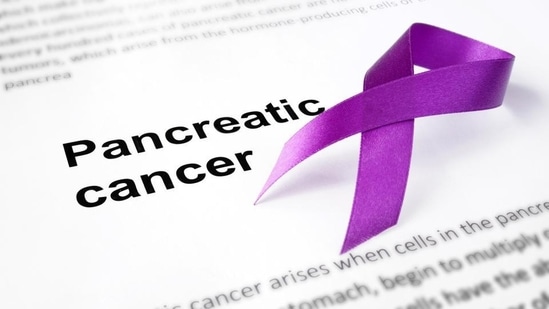Pancreatic cancer begins in the tissues of the pancreas and is known for being aggressive in nature. Early detection of pancreatic cancer is challenging, and it usually goes unnoticed till in the later stages. Signs of pancreatic cancer in the later stages include yellowing of the skin, upper abdominal pain, dark urine, itchy skin, nausea and fatigue. It is important to identify the contributing factors to fight the risk of pancreatic cancer. In an interview with HT Lifestyle, Dr. Sacheev Nanda, Chief Dental Surgeon, (M.D.S) Prosthodontist, Ruby Hall Clinic Pune identified Porphyromonas gingivalis as the bacteria contributing to cancer development.

“Porphyromonas gingivalis, commonly associated with gum disease, has been found in higher levels in the saliva of individuals with pancreatic cancer. Studies suggest it may contribute to cancer development by creating an inflammatory environment and potentially even residing within cancer cells. While Porphyromonas gingivalis is the most studied, other oral bacteria may also play a role in pancreatic cancer risk,” Dr. Sacheev Nanda added.
ALSO READ: Pankaj Udhas suffered from pancreatic cancer; all about the disease
Inflammation:
Oral bacteria can trigger inflammation, a known risk factor for various cancers.
Direct impact on pancreatic cells:
Some research suggests these bacteria can directly harm pancreatic cells, further triggering cancer development.
Altering the pancreatic environment:
The presence of oral bacteria in the pancreas can create conditions favorable for cancer cell growth.
ALSO READ: Pancreatic cancer: From symptoms to treatment, know it all
Cautions and future directions:
Pancreatic cancer is a complex disease influenced by various genetic, environmental, and lifestyle factors. Smoking, chronic pancreatitis, diabetes, obesity, and the family history of pancreatic cancer can also contribute to cancer development.
ALSO READ: World Pancreatic Cancer Day: 5 early warning signs that should not be ignored
Exposure to chemicals and heavy metals:
exposure to chemicals and heavy metals such as beta-naphthylamine, benzidine, pesticides, asbestos, and benzene can also contribute to the risk of pancreatic cancer.
Physical activities:
People who engage in physical activities have a lower risk of pancreatic cancer than the ones who do not engage in any physical activity.


